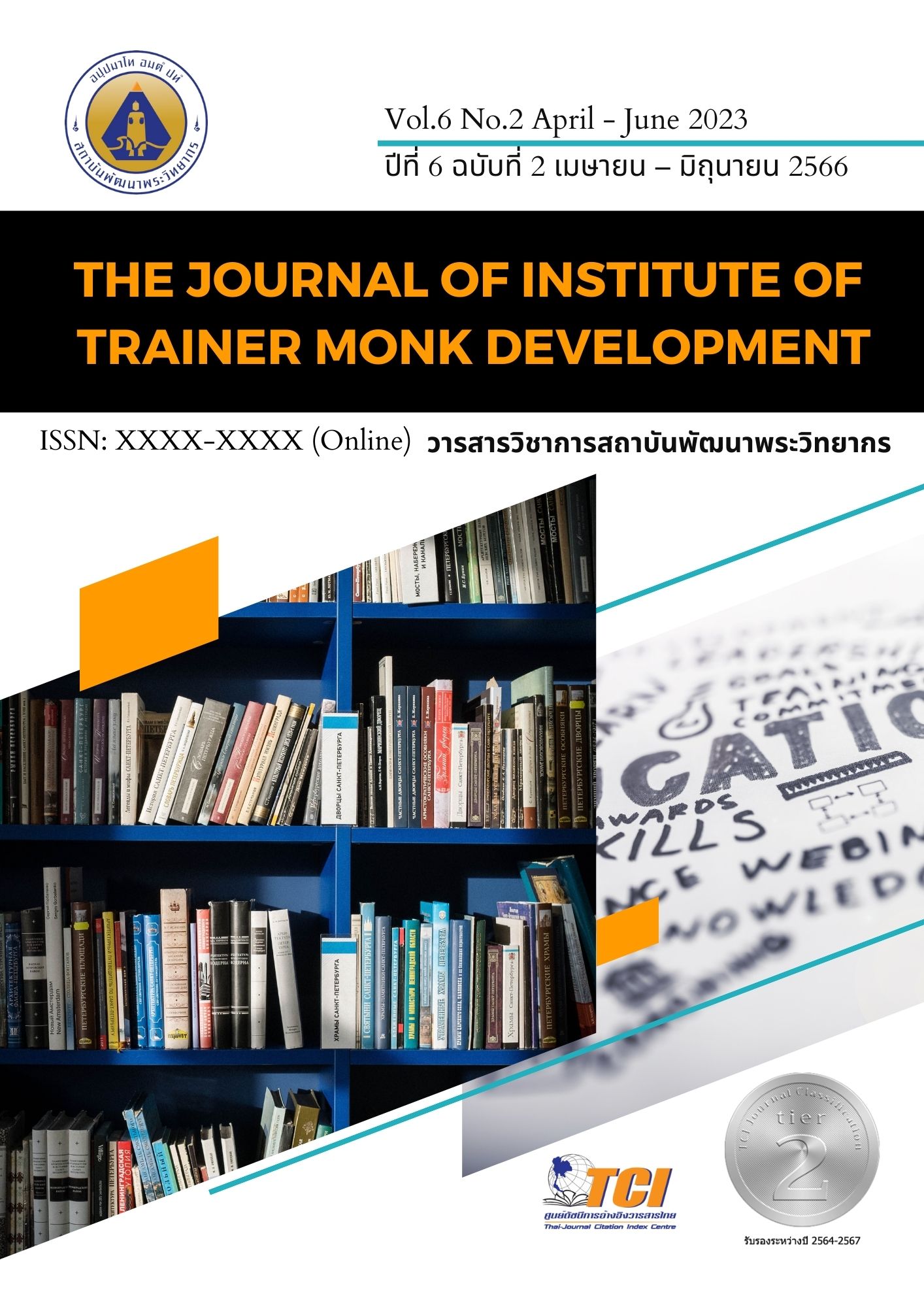การประเมินหลักสูตรศึกษาศาสตรมหาบัณฑิต สาขาวิชาการบริหารการศึกษา (หลักสูตรปรับปรุง พ.ศ. 2561) คณะศึกษาศาสตร์ มหาวิทยาลัยศิลปากร
Main Article Content
บทคัดย่อ
การวิจัยในครั้งนี้มีวัตถุประสงค์เพื่อ 1) ประเมินหลักสูตรศึกษาศาสตรหาบัณฑิต สาขาวิชาการบริหารการศึกษา (ฉบับปรับปรุง พ.ศ. 2561) คณะศึกษาศาสตร์ มหาวิทยาลัยศิลปากร 2) ศึกษาความคิดเห็น ความคาดหวังและข้อเสนอแนะเกี่ยวกับหลักสูตรศึกษาศาสตรมหาบัณฑิต สาขาวิชาการบริหารการศึกษา (ฉบับปรับปรุง พ.ศ. 2561) คณะศึกษาศาสตร์ มหาวิทยาลัยศิลปากร 3) ศึกษาผลลัพธ์การเรียนรู้ที่คาดหวังของหลักสูตรตามเกณฑ์การประกันคุณภาพตามแนว AUN-QA ประชากรและกลุ่มตัวอย่างที่ใช้ในการศึกษาประกอบด้วย 1) อาจารย์ประจำหลักสูตร 2) นักศึกษาในหลักสูตร3) บัณฑิตที่สำเร็จการศึกษา และ 4) ผู้บังคับบัญชาของมหาบัณฑิต รวมกลุ่มตัวอย่างทั้งสิ้น 127 คน เครื่องมือที่ใช้ในการวิจัยประกอบด้วยแบบสัมภาษณ์แบบมีโครงสร้าง แบบสอบถามความคิดเห็น สถิติที่ใช้ ได้แก่ การวิเคราะห์เนื้อหา ความถี่ ร้อยละ ค่าเฉลี่ย และส่วนเบี่ยงเบนมาตรฐาน ผลการวิจัยพบว่า
- หลักสูตรศึกษาศาสตรมหาบัณฑิต สาขาวิชาการบริหารการศึกษา (หลักสูตรปรับปรุง พ.ศ. 2561) คณะศึกษาศาสตร์ มหาวิทยาลัยศิลปากรมีความเหมาะสมและสอดคล้องกับวัตถุประสงค์และโครงสร้างของหลักสูตร เนื้อหารายวิชาในหลักสูตร ความรู้ความสามารถ ประสบการณ์ของอาจารย์/อาจารย์ที่ปรึกษาวิทยานิพนธ์ ความรู้ความสามารถของบุคลากรฝ่ายสนับสนุน ความรู้ความสามารถ ประสบการณ์ของนักศึกษา วัสดุอุปกรณ์ สิ่งอำนวยความสะดวกและอาคารสถานที่ ด้านการจัดการเรียนการสอน ด้านการจัดกิจกรรมของหลักสูตร ด้านการวัดและประเมินผล ด้านการดูแลนักศึกษา ด้านวิชาการและการทำวิทยานิพนธ์ ด้านความพึงพอใจต่อหลักสูตร ทั้งด้านปัจจัยนำเข้า ด้านกระบวนการ ในภาพรวมอยู่ในระดับมาก
- ความคิดเห็น ความคาดหวัง ผลผลิตและข้อเสนอแนะประกอบด้วย 1) ควรให้มีการพัฒนานักศึกษาให้มีคุณลักษณะตามปรัชญาของภาควิชาที่ได้กำหนดไว้ 2) ควรนำองค์ความรู้ทางการบริหารที่ทันสมัยไปประยุกต์ใช้ในการปฏิบัติงาน 3) ควรปรับปรุงหลักสูตรให้ทันสมัยกับการเปลี่ยนแปลงทางด้านเทคโนโลยีสารสนเทศในปัจจุบัน และ 4) ควรพัฒนาให้นักศึกษามีความสามารถในการต่อยอดองค์ความรู้ด้วยกระบวนการวิจัยเพื่อความก้าวหน้าทางวิชาการและวิชาชีพ
- ผลลัพธ์การเรียนรู้ที่คาดหวังของหลักสูตรตามเกณฑ์การประกันคุณภาพตามแนว AUN-QA พบว่าหลักสูตรสามารถตอบสนองความต้องการของนักศึกษา บัณฑิต และผู้บังคับบัญชา อยู่ในระดับมาก
Article Details

อนุญาตภายใต้เงื่อนไข Creative Commons Attribution-NonCommercial-NoDerivatives 4.0 International License.
บทความที่ได้รับการตีพิมพ์เป็นลิขสิทธิ์ของวารสารวิชาการสถาบันพัฒนาพระวิทยากร
ข้อความที่ปรากฎอยู่ในบทความที่ได้รับการตีพิมพ์ในวารสาร ถือเป็นความรับผิดชอบของผู้เขียนบทความ และข้อคิดเห็นนั้นไม่ถือว่าเป็นทัศนะและความรับผิดชอบของกองบรรณาธิการวารสารวิชาการสถาบันพัฒนาพระวิทยากร
เอกสารอ้างอิง
คณะกรรมการประกันคุณภาพและขับเคลื่อนการพัฒนาคุณภาพการศึกษาสู่มาตรฐานสากล. (2564). “คู่มือแนวทางดำเนินการประกันคุณภาพการศึกษาภายใน มหาวิทยาลัยศิลปากร (ระดับ หลักสูตร)”. คณะกรรมการประกันคุณภาพและขับเคลื่อนการพัฒนา คุณภาพการศึกษาสู่มาตรฐานสากล มหาวิทยาลัยศิลปากร.
งานประกันคุณภาพการศึกษา สำนักงานอธิการบดี มหาวิทยาลัยเทคโนโลยีราชมงคลศรีวิชัย. (2563). เอกสารประกอบการชี้แจง แนวทางการดำเนินงานประกันคุณภาพการศึกษาตามเกณฑ์ AUN QA ประจำปีการศึกษา 2563. สืบค้นข้อมูลเมื่อวันที่ 18 มกราคม 2565 จากhttp://ir.rmutsv.ac.th/sites/ir.rmutsv.ac.th/files/file/dowslond/04AUNQA.pdf
มหาวิทยาลัยศิลปากร. (2561). หลักสูตรศึกษาศาสตรมหาบัณฑิต สาขาวิชาการบริหารการศึกษา(หลักสูตรปรับปรุง พ.ศ. 2561). ภาควิชาการบริหารการศึกษา บัณฑิตวิทยาลัย มหาวิทยาลัยศิลปากร.
สำนักมาตรฐานและประเมินผลอุดมศึกษา. (2553). มาตรฐานการอุดมศึกษาและเกณฑ์มาตรฐานที่เกี่ยวข้อง. พิมพ์ครั้งที่ 6. กรุงเทพมหานคร: ภาพพิมพ์.
สุชาดา นันทะไชยและคณะ. (2550). การประเมินหลักสูตรศึกษาศาสตรดุษฎีบัณฑิต. รายงานการวิจัย. สาขาวิชาการบริหารการศึกษา ภาควิชาการศึกษา คณะศึกษาศาสตร์ มหาวิทยาลัยเกษตรศาสตร์.
อนุวัตร อินทนชิตจุ้ย. (2562). “รูปแบบความสัมพันธ์เชิงสาเหตุขององค์ประกอบทางการบริหารกับความผูกพันต่อโรงเรียนของครูสังกัดสำนักเขตพื้นที่การศึกษาประถมศึกษา”. ปริญญาดุษฎีบัณฑิต. สาขาวิชาการบริหารการศึกษา บัณฑิตวิทยาลัย มหาวิทยาลัยศิลปากร.
Krejcie, R. V. and Morgan, D. W. (1970). “Determining Sample Size for ResearchActivities.” Educational and Psychological Measurement, no. 30(3): 607-610.
Stake, Robert E. (1988). Evaluating curriculum. Geelong, Vic. Deakin University.


